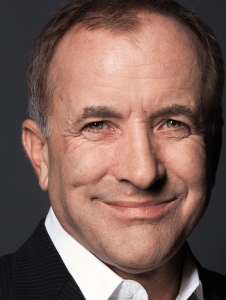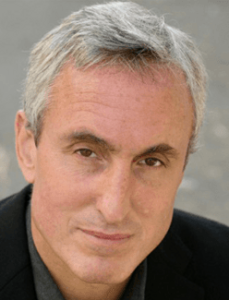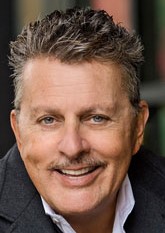EP 947 The Bag of Tricks Used to Make Black Homeownership Difficult Continues to Grow
 If you go back and look at the history of how Blacks in America have been limited in their pursuit of the American Dream by way of home ownership, the record is staggering. Historically there have been racial covenants, redlining, predatory mortgage lending, blockbusting, urban renewal and now we can add a new pernicious tool: property tax foreclosures. Our guest, Professor Bernadette Atuahene, the author of “Plundered: How Racist Policies Undermine Black Homeownership in America,” describes, chapter and verse, how this practice has been done in Detroit, the focus of the book’s case study. Yet, this tactic, along with the others listed above, have been commonplace throughout the nation. You will find in listening to this podcast that our guest is clear-eyed about the many machinations which have grown the wealth disparity in our nation. The transfer of wealth from one generation to another is a product of home ownership: thus, the vast differentials between races. She will acquaint you with terms like ‘structural injustice’, ‘predatory governance, ‘ and ‘acts of legal violence.’ Many practices we would all find objectionable in this age are hiding in plain sight. After listening to this podcast, you will be much better equipped to identify them. And like the scholar/activist our guest is, perhaps, you can do something in your community to remedy them.
If you go back and look at the history of how Blacks in America have been limited in their pursuit of the American Dream by way of home ownership, the record is staggering. Historically there have been racial covenants, redlining, predatory mortgage lending, blockbusting, urban renewal and now we can add a new pernicious tool: property tax foreclosures. Our guest, Professor Bernadette Atuahene, the author of “Plundered: How Racist Policies Undermine Black Homeownership in America,” describes, chapter and verse, how this practice has been done in Detroit, the focus of the book’s case study. Yet, this tactic, along with the others listed above, have been commonplace throughout the nation. You will find in listening to this podcast that our guest is clear-eyed about the many machinations which have grown the wealth disparity in our nation. The transfer of wealth from one generation to another is a product of home ownership: thus, the vast differentials between races. She will acquaint you with terms like ‘structural injustice’, ‘predatory governance, ‘ and ‘acts of legal violence.’ Many practices we would all find objectionable in this age are hiding in plain sight. After listening to this podcast, you will be much better equipped to identify them. And like the scholar/activist our guest is, perhaps, you can do something in your community to remedy them.
Podcast: Play in new window | Download
 I must admit that while I took a deep dive into Michael Shermer’s new book, “Truth: What It Is, How to Find It & Why It Still Matters,” I was not certain in what direction I would take the interview. It raised so many questions about this moment when many believe that you can’t believe anything you read or see in the media and that politicians feel the bigger the lie, the harder it is to refute. So how do you test for veracity, when you’re told there are such things as ‘alternative facts?’ It’s so confusing. However, his great personality and sharp intellect were on full display and off to the races we were discussing scientific truths and how they’re tested and a range of other truths from spiritual to political. Shermer, in addition to being the author of a fascinating new book about almost imponderable subject, is the publisher of ‘Skeptic’ magazine. So why not start by asking what differentiates a skeptic from a cynic and then, well, we were off and running.
I must admit that while I took a deep dive into Michael Shermer’s new book, “Truth: What It Is, How to Find It & Why It Still Matters,” I was not certain in what direction I would take the interview. It raised so many questions about this moment when many believe that you can’t believe anything you read or see in the media and that politicians feel the bigger the lie, the harder it is to refute. So how do you test for veracity, when you’re told there are such things as ‘alternative facts?’ It’s so confusing. However, his great personality and sharp intellect were on full display and off to the races we were discussing scientific truths and how they’re tested and a range of other truths from spiritual to political. Shermer, in addition to being the author of a fascinating new book about almost imponderable subject, is the publisher of ‘Skeptic’ magazine. So why not start by asking what differentiates a skeptic from a cynic and then, well, we were off and running. You may have heard that there is a new food pyramid in town. In January of this year, the U.S. Department of Agriculture and the U.S. Department of Health and Human Services released an updated version of the Dietary Guidelines for Americans. The 10-page document is a major change from the one published five years ago. The new emphasis is on boosting protein and healthy fats, like eggs, seafood, red meat, dairy, beans and nuts. It still wants us to load up on veggies and fruit and to choose whole grains. Pasta, white breads and other carbohydrates are further diminished on this pyramid in favor of more whole foods and fewer processed foods. Saturated fat, villainized in previous pyramids, has been resurrected in this one. To discuss the shifts is Gary Taubes, an accomplished science writer who has written books, including “Good Calories: Bad Calories”, “Why We Get Fat” and “The Case Against Sugar.” He knows his stuff as you can tell early on in this discussion.
You may have heard that there is a new food pyramid in town. In January of this year, the U.S. Department of Agriculture and the U.S. Department of Health and Human Services released an updated version of the Dietary Guidelines for Americans. The 10-page document is a major change from the one published five years ago. The new emphasis is on boosting protein and healthy fats, like eggs, seafood, red meat, dairy, beans and nuts. It still wants us to load up on veggies and fruit and to choose whole grains. Pasta, white breads and other carbohydrates are further diminished on this pyramid in favor of more whole foods and fewer processed foods. Saturated fat, villainized in previous pyramids, has been resurrected in this one. To discuss the shifts is Gary Taubes, an accomplished science writer who has written books, including “Good Calories: Bad Calories”, “Why We Get Fat” and “The Case Against Sugar.” He knows his stuff as you can tell early on in this discussion. In 2025, more Americans have taken to the streets to protest various issues that concern them about our nation’s politics than in the recent past. As a country that came about from rebellion against tyranny, it is an American birthright. Various forms of protest have given energy to civil rights, improved labor conditions, a cleaner environment and the ending of wars, like Vietnam. However, there are many who are not moved to participate in this great American tradition or may not think they are. Writing to a government official, signing a petition or not shopping at a particular business, as well as more demonstrative acts of holding a sign in public, constitute a form of protest. We learn a great deal about the various manifestations it takes in Gloria J. Browne-Marshall’s new book, “A Protest History of the United States.” She gives us eye-opening account of its centrality to the American experience then and now. Regular people using resistance, rebellion and activism represent the most effective way to change our world.
In 2025, more Americans have taken to the streets to protest various issues that concern them about our nation’s politics than in the recent past. As a country that came about from rebellion against tyranny, it is an American birthright. Various forms of protest have given energy to civil rights, improved labor conditions, a cleaner environment and the ending of wars, like Vietnam. However, there are many who are not moved to participate in this great American tradition or may not think they are. Writing to a government official, signing a petition or not shopping at a particular business, as well as more demonstrative acts of holding a sign in public, constitute a form of protest. We learn a great deal about the various manifestations it takes in Gloria J. Browne-Marshall’s new book, “A Protest History of the United States.” She gives us eye-opening account of its centrality to the American experience then and now. Regular people using resistance, rebellion and activism represent the most effective way to change our world. Courses on Western Civilization were once a staple in schools. No longer. It’s been replaced by Global Civilization or Social Studies courses. Our guest, former Harvard Professor, James Hankins and his co-author, Professor Allen Guelzo, sought to change that so that the good resulting from the traditions of Western Civilization–its art, literature, law, philosophy, science, faith, and tolerance–are preserved and, thus, perpetuated. Professor Hankins authored volume I of ‘The Golden Thread: A History of the Western Tradition” and Professor Guelzo will take this impressive work from the 1500’s to the modern day in Volume II. The epic scope of the project is meant to provide that which threads from ancient Greece, through the Roman Empire and Christendom and then to more modern civilizations, including our own. The second volume will provide context as to how our Founding Fathers tried to maintain the synthesis of reason and compassion, the twin exemplars of the tradition they unpack for us. Western Civilization’s great achievements predominate, but its failings are also a part of this scholarly work. Professor Hankins joins us today to discuss.
Courses on Western Civilization were once a staple in schools. No longer. It’s been replaced by Global Civilization or Social Studies courses. Our guest, former Harvard Professor, James Hankins and his co-author, Professor Allen Guelzo, sought to change that so that the good resulting from the traditions of Western Civilization–its art, literature, law, philosophy, science, faith, and tolerance–are preserved and, thus, perpetuated. Professor Hankins authored volume I of ‘The Golden Thread: A History of the Western Tradition” and Professor Guelzo will take this impressive work from the 1500’s to the modern day in Volume II. The epic scope of the project is meant to provide that which threads from ancient Greece, through the Roman Empire and Christendom and then to more modern civilizations, including our own. The second volume will provide context as to how our Founding Fathers tried to maintain the synthesis of reason and compassion, the twin exemplars of the tradition they unpack for us. Western Civilization’s great achievements predominate, but its failings are also a part of this scholarly work. Professor Hankins joins us today to discuss. America built this thing we call the middle class. It was purposeful and forward-looking public policy in the 1930’s which recognized that the strength of our democracy required a vibrant sector that could aspire to a middle -class life of owning a home, putting your children through college and retiring comfortably. It resulted in a period our guest calls the ‘Great Compression’ (1947-1974) in which workers received a fair share of the nation’s economic prosperity. In this timeframe, there was an expectation of job security and stability, undergirded by strong labor unions. Much of that has changed over the last 50 years as wealth has gone to the top and left workers behind. Much of our political unrest today (affordability) is a byproduct of those changes. So, what happened? Our guest, University of Texas Law School professor, A. Mechele Dickerson, lays it out, chapter and verse, in her new book “The Middle- Class New Deal: Restoring Upward Mobility and the American Dream.” It’s essential to any understanding of where we are today
America built this thing we call the middle class. It was purposeful and forward-looking public policy in the 1930’s which recognized that the strength of our democracy required a vibrant sector that could aspire to a middle -class life of owning a home, putting your children through college and retiring comfortably. It resulted in a period our guest calls the ‘Great Compression’ (1947-1974) in which workers received a fair share of the nation’s economic prosperity. In this timeframe, there was an expectation of job security and stability, undergirded by strong labor unions. Much of that has changed over the last 50 years as wealth has gone to the top and left workers behind. Much of our political unrest today (affordability) is a byproduct of those changes. So, what happened? Our guest, University of Texas Law School professor, A. Mechele Dickerson, lays it out, chapter and verse, in her new book “The Middle- Class New Deal: Restoring Upward Mobility and the American Dream.” It’s essential to any understanding of where we are today How can we have too much free speech? And should everyone have access to large platforms to express increasingly outrageous and unbridled opinions? That was what I was asking in this conversation in the context of the infamous Tucker Carlson interview with avowed Nazi sympathizer Nick Fuentes. Why platform him and extend his audience four times beyond what he otherwise would have? And given that the emotional fragility of many in this moment might incite someone listening to act out in some manner? And while my guest, Dr. Chloe Carmichael, a clinical psychologist, and author of “Can I Say That” finds his remarks detestable, as well, she holds the view that free expression, when suppressed, leads to greater psychological problems in the process. It’s an interesting discussion. I paraphrase a lawyer who questioned Sen. Joseph McCarthy, during his Red Scare moment, in the 1950’s asking the question ‘have you no decency, sir.’ The lack of civility and restraint now occupies the speaker’s corner in America and in an era of social media the amplification of it is very loud and unsettling. And while the First Amendment is often cited as giving me the right to say anything I want, it refers specifically to the government’s inability to suppress that speech. Your employer can do it. Owners of professional teams can throw you out of the stadium for being obnoxious. Perhaps mom had the right idea. If you can’t say something nice about someone, don’t say anything at all. Mr. President, are you listening?
How can we have too much free speech? And should everyone have access to large platforms to express increasingly outrageous and unbridled opinions? That was what I was asking in this conversation in the context of the infamous Tucker Carlson interview with avowed Nazi sympathizer Nick Fuentes. Why platform him and extend his audience four times beyond what he otherwise would have? And given that the emotional fragility of many in this moment might incite someone listening to act out in some manner? And while my guest, Dr. Chloe Carmichael, a clinical psychologist, and author of “Can I Say That” finds his remarks detestable, as well, she holds the view that free expression, when suppressed, leads to greater psychological problems in the process. It’s an interesting discussion. I paraphrase a lawyer who questioned Sen. Joseph McCarthy, during his Red Scare moment, in the 1950’s asking the question ‘have you no decency, sir.’ The lack of civility and restraint now occupies the speaker’s corner in America and in an era of social media the amplification of it is very loud and unsettling. And while the First Amendment is often cited as giving me the right to say anything I want, it refers specifically to the government’s inability to suppress that speech. Your employer can do it. Owners of professional teams can throw you out of the stadium for being obnoxious. Perhaps mom had the right idea. If you can’t say something nice about someone, don’t say anything at all. Mr. President, are you listening? Routines, purpose and morning rituals can be key determinants as to whether older Americans’ lifespan will be one in which their health allows them to remain active and engaged. And Dwayne Clark, co-author of “The Miracle Morning After 50: A Proven Path to Joy, Vitality and Purpose for Aging Adults,” provides evidence of that in this podcast. He, along with co-author Hal Elrod, have seen close up two kinds of aging–those who live with purpose and those who quietly fade. Once you begin to hear his approach to increasing your health span, it will become evident that Clark has thought long and hard about the practices that work and can communicate them very effectively. Among the methods: joint-friendly exercise, sleep-awareness, purpose-driven visualization, and journaling, all of which prompt our ability to refocus and recharge. He will have you rethinking your approach to meeting the day in this inspiring podcast.
Routines, purpose and morning rituals can be key determinants as to whether older Americans’ lifespan will be one in which their health allows them to remain active and engaged. And Dwayne Clark, co-author of “The Miracle Morning After 50: A Proven Path to Joy, Vitality and Purpose for Aging Adults,” provides evidence of that in this podcast. He, along with co-author Hal Elrod, have seen close up two kinds of aging–those who live with purpose and those who quietly fade. Once you begin to hear his approach to increasing your health span, it will become evident that Clark has thought long and hard about the practices that work and can communicate them very effectively. Among the methods: joint-friendly exercise, sleep-awareness, purpose-driven visualization, and journaling, all of which prompt our ability to refocus and recharge. He will have you rethinking your approach to meeting the day in this inspiring podcast. Senator Barry Goldwater, the Republican nominee for President in 1964, was in no way a virulent racist, like others in his era, including Bull Connor, George Wallace or Strom Thurmond. But he reached a higher plateau in American politics and his views on ‘freedom’ were in direct contrast with those of Martin Luther King, Jr., who felt that until human and economic rights were secured for all, it did not exist in full form in America. Goldwater felt that freedom was in trouble because the federal government was usurping states’ rights and the rugged individualism, he espoused with his Western frontier approach to government. They embodied a modern clash of the civil rights movement and the conservative movement as they both gained momentum. Clearly, in the short run, Martin Luther King, Jr’s. vision won out in 1964 when the Civil Rights bill was passed and Goldwater lost in emphatic fashion to Lyndon Johnson, winning only five states. However, their differences have been embodied in our politics to this day.
Senator Barry Goldwater, the Republican nominee for President in 1964, was in no way a virulent racist, like others in his era, including Bull Connor, George Wallace or Strom Thurmond. But he reached a higher plateau in American politics and his views on ‘freedom’ were in direct contrast with those of Martin Luther King, Jr., who felt that until human and economic rights were secured for all, it did not exist in full form in America. Goldwater felt that freedom was in trouble because the federal government was usurping states’ rights and the rugged individualism, he espoused with his Western frontier approach to government. They embodied a modern clash of the civil rights movement and the conservative movement as they both gained momentum. Clearly, in the short run, Martin Luther King, Jr’s. vision won out in 1964 when the Civil Rights bill was passed and Goldwater lost in emphatic fashion to Lyndon Johnson, winning only five states. However, their differences have been embodied in our politics to this day. Throughout history diplomats have played keys roles in settling disputes among nations by winning alliances, splintering enemy coalitions, and making peace with their bitterest foes. And, yet, in the post- Cold War period America has relied more upon the strength of its military, international covenants and economic muscle, as the world’s reserve currency, to impose its vast might on allies and adversaries alike. Our guest, A. Wess Mitchell, a Principal and Co-Founder of the Marathon Initiative and the author of the new book, “Great Power Diplomacy: The Skill of Statecraft from Attila the Hun to Kissinger,” thinks this approach will not work going forward because America does not have the capacity to vanquish all the threats on the battlefield, particularly with the fragility of our own domestic politics and heavy debt load. He makes a compelling argument as we circle the globe with him looking at America’s position in the world today.
Throughout history diplomats have played keys roles in settling disputes among nations by winning alliances, splintering enemy coalitions, and making peace with their bitterest foes. And, yet, in the post- Cold War period America has relied more upon the strength of its military, international covenants and economic muscle, as the world’s reserve currency, to impose its vast might on allies and adversaries alike. Our guest, A. Wess Mitchell, a Principal and Co-Founder of the Marathon Initiative and the author of the new book, “Great Power Diplomacy: The Skill of Statecraft from Attila the Hun to Kissinger,” thinks this approach will not work going forward because America does not have the capacity to vanquish all the threats on the battlefield, particularly with the fragility of our own domestic politics and heavy debt load. He makes a compelling argument as we circle the globe with him looking at America’s position in the world today.